Locked brakes and a car that won’t start can be a frustrating and potentially dangerous situation. Understanding the underlying causes is crucial for resolving the issue effectively. This comprehensive guide delves into the common reasons behind locked brakes and engine failure, providing a systematic approach to troubleshooting and repairs. By exploring the interplay between the brake and ignition systems, we aim to empower you with the knowledge to diagnose and rectify the problem, ensuring a safe and efficient vehicle operation.
Why Did My Brakes Get Locked Up and My Car Won’t Start?
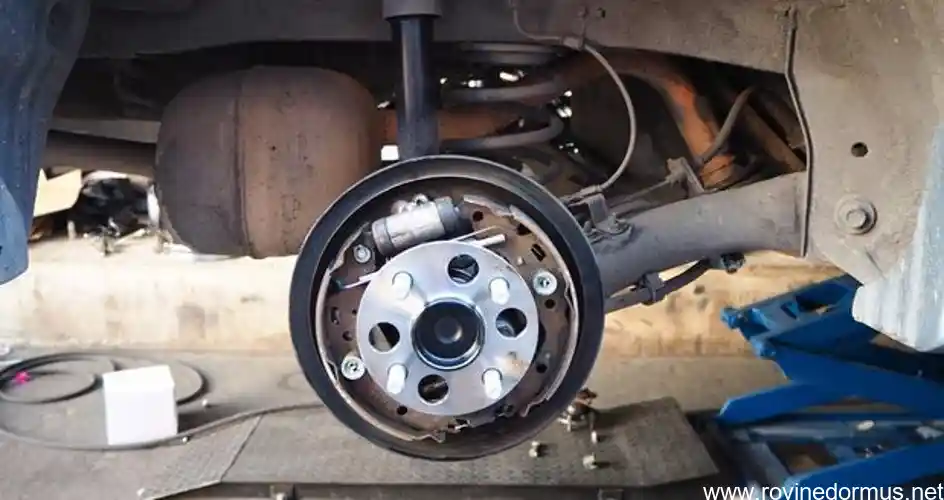
When you suddenly find your car’s brakes locked up, leaving you stranded with an unyielding engine, it can be an unsettling experience. This puzzling issue often stems from a complex interplay between the braking system and the engine’s ignition process. To untangle this enigma, we’ll embark on a diagnostic journey, exploring potential causes and guiding you towards a resolution. By understanding electrical failures, vacuum system issues, and mechanical faults, we can unlock the mystery behind locked brakes and engine failure.
Join us as we delve into the intricacies of your vehicle’s systems to restore its smooth operation and get you back on the road with confidence.
Diagnosing the Root Cause: Electrical Failure, Vacuum System Issues, Mechanical Faults
Have you ever experienced the jarring sensation of your brakes locking up while you’re driving, leaving you with a non-responsive car that refuses to start? It’s a frustrating and potentially dangerous situation that can leave you stranded and clueless about what to do next. But fear not, because understanding the underlying causes of locked brakes and engine failure can empower you to tackle this issue head-on.
Troubleshooting the Electrical System: Battery, Starter, and Wiring
When your brakes lock up and your car won’t start, it can be a frustrating and even frightening experience. The inability to control your vehicle and the failure to start it can leave you stranded and concerned about what’s gone wrong. Understanding the potential causes behind this issue is crucial for taking appropriate action. The problem could stem from an electrical failure, vacuum system malfunction, or mechanical fault.
Electrical issues may involve a dead battery, faulty starter, or wiring problems. Vacuum system issues can include leaking hoses or a malfunctioning brake booster. Mechanical faults could involve seized pistons or frozen brake pads. By identifying the root cause, you can begin the necessary repairs to restore your car’s functionality.
.
Inspecting the Vacuum System: Brake Booster and Hoses
When your brakes lock up and your car refuses to start, it’s like being caught in a traffic jam with no escape route. The cause could be anything from a faulty electrical system to a vacuum leak or even mechanical issues within the brake system itself. It’s like trying to solve a Rubik’s cube blindfolded – a perplexing puzzle that requires a step-by-step approach to unravel its mysteries. Luckily, with the right tools and a bit of patience, you can unlock the secrets behind these frustrating symptoms and get your car back on the road.
The key is to methodically diagnose each potential cause, starting with the electrical system and working your way through the vacuum and brake systems. By following a systematic approach, you’ll be able to identify the culprit and apply the right solution, restoring both your brakes and your car’s ability to start.
Checking the Brake System: Master Cylinder, Brake Lines, and Calipers
If you’ve ever experienced the disconcerting combination of locked brakes and a car that refuses to budge, you’re not alone. This frustrating situation can leave you stranded and wondering what went wrong. Understanding the potential causes behind this puzzling issue is crucial to getting back on the road swiftly and safely. Electrical failures, vacuum system problems, and mechanical faults can all contribute to this perplexing predicament.
By thoroughly investigating these areas, you can pinpoint the root cause and implement the appropriate solution, leaving you with a car that starts seamlessly and brakes reliably.
Addressing Mechanical Issues: Seized Pistons, Frozen Brake Pads
When you’re suddenly faced with locked brakes and a car that won’t start, it can feel like a scene from a disaster movie. The frustration and worry can quickly spiral as you try to understand what’s gone wrong. It’s like trying to solve a complicated puzzle with pieces missing, leaving you feeling helpless and unsure of what to do next. But don’t panic just yet! By calmly assessing the situation and following a systematic approach, you can uncover the root cause of the problem and get your car back on the road in no time.
It might require some detective work and a bit of your time, but it’s definitely doable, even for those without a mechanical background. So, let’s dive into the mystery and unlock the secrets behind those locked brakes and engine failure, shall we?.
Unlocking the Mystery: Common Causes for Locked Brakes and Engine Failure
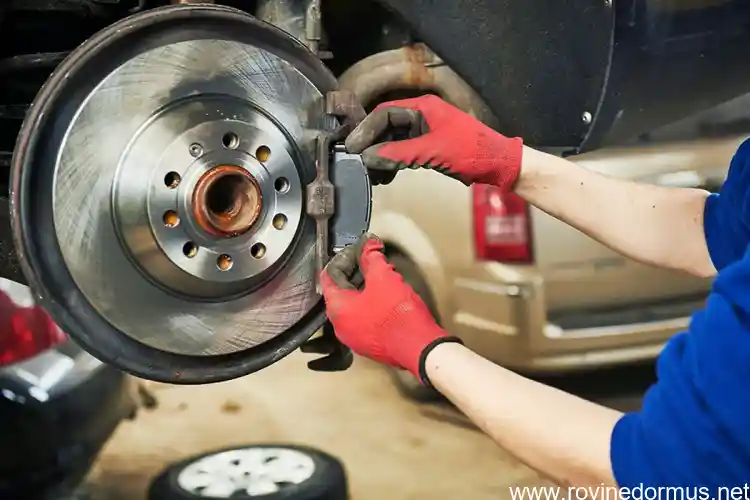
**Unlocking the Mystery: Common Causes for Locked Brakes and Engine Failure**When your brakes seize up and your car won’t start, it can be a perplexing issue. Fortunately, understanding the potential causes can help you get back on the road safely and efficiently. Electrical malfunctions, vacuum system failures, and mechanical brake problems can all lead to this frustrating combination of problems. Electrical issues, such as a dead battery or faulty starter, can prevent the flow of electricity needed to engage the brakes and start the engine.
Vacuum system failures, including leaking hoses or a malfunctioning brake booster, can also cause the brakes to lock up and the engine to stall. Finally, mechanical brake problems, such as frozen calipers or seized pistons, can physically prevent the brakes from releasing and the engine from starting. By investigating these potential causes, you can identify the root of the problem and take the necessary steps to resolve it, restoring your car’s performance and getting you back on the road confidently.
Electrical System Malfunction: Dead Battery, Faulty Starter
The interplay between your car’s braking system and its ignition can be a tricky one. When your brakes lock up, it’s not just an inconvenience; it can also lead to a whole host of other problems, including engine failure. But why does this happen? The answer lies in the delicate balance of electrical, vacuum, and mechanical systems that work together to keep your car running smoothly. Let’s unravel the mystery behind this frustrating scenario and explore the underlying causes of locked brakes and their impact on your car’s ability to start.
.
Vacuum System Failure: Leaking Hoses, Malfunctioning Brake Booster
Have you ever experienced the unsettling situation where your brakes lock up, leaving you stranded and unable to start your car? It’s a puzzling and frustrating problem that can raise concerns about your vehicle’s safety and reliability. The locked brakes and non-starting engine can be interconnected, and understanding the underlying causes is crucial to resolving the issue. In this section, we’ll delve into the common mysteries behind this perplexing scenario, examining the potential electrical system malfunctions, vacuum system failures, and mechanical brake problems that may be at the root of your automotive troubles.
Mechanical Brake Problems: Frozen Calipers, Seized Pistons
Unraveling the enigma behind locked brakes and a non-starting car is like a detective story, where you piece together clues to uncover the culprit. The most common suspects are electrical system malfunctions, vacuum system failures, and mechanical brake problems. Electrical issues can range from a dead battery to a faulty starter, while vacuum system failures may involve leaking hoses or a malfunctioning brake booster. Mechanical brake problems can manifest as frozen calipers or seized pistons, preventing the wheels from rotating freely.
Understanding these common causes empowers you to diagnose the root of the issue and restore your car to its prime condition.
Step-by-Step Guide to Fixing Locked Brakes and Restoring Car Ignition
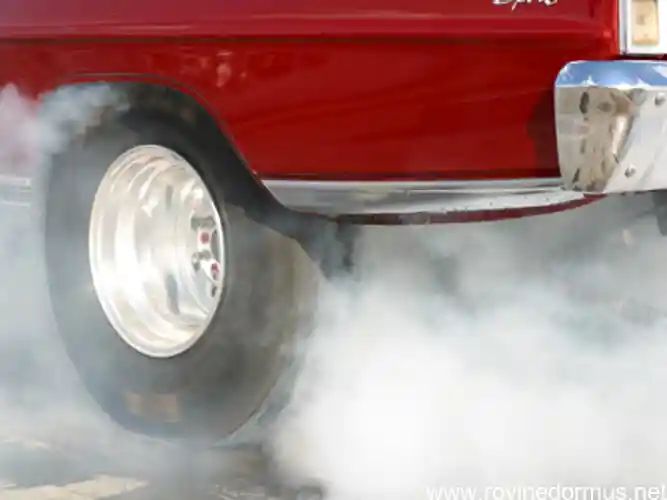
If you’re facing the perplexing predicament of locked brakes and a car that refuses to start, don’t succumb to panic. Instead, follow this step-by-step guide to diagnose and resolve the issue, restoring your vehicle to its former glory. Begin by safely parking your car, ensuring it’s in gear and the parking brake is engaged. Next, embark on troubleshooting the electrical system, checking the battery, starter, and wiring for any signs of malfunction.
Don’t overlook the vacuum system; inspect hoses for leaks and ensure the brake booster is functioning properly. Thoroughly inspect the brake system, examining the master cylinder, brake lines, and calipers for any damage or defects. Finally, address any mechanical issues, such as unfreezing calipers or replacing worn brake pads. Remember, it’s like a medical diagnosis for your car – a systematic approach leads to an accurate fix.
.
Safely Assessing the Situation: Parking, Gear Selection, Parking Brake
If you find yourself in the disconcerting situation where your brakes have locked up and your car refuses to start, it’s imperative to remain calm and embark on a methodical troubleshooting journey. Begin by ensuring your safety: park the car on a level surface, engage the parking brake, and shift into neutral or park (for automatic transmissions). Then, it’s time to delve into the potential causes behind this automotive conundrum. Start by inspecting the battery terminals for any signs of corrosion or loose connections.
Next, try starting the car in neutral to determine if the issue lies with the starter or the brakes themselves. By following this step-by-step approach, you can systematically identify the root cause and restore both your brakes and ignition system to their former glory.
Troubleshooting the Electrical System: Checking Battery, Starter, and Wiring
If your brakes are locked up and your car won’t start, you may be facing a perplexing situation. It’s like being trapped in a mechanical mystery, with your vehicle refusing to budge and your ignition system seemingly dead. To unravel this enigma, you need to embark on a troubleshooting adventure, methodically examining each component that could be the culprit. Your journey starts with a careful assessment of the electrical system – is the battery providing enough power to crank the starter? Is the starter functioning properly? Once you’ve eliminated electrical issues, it’s time to investigate the vacuum system, checking for leaks in the hoses and assessing the brake booster.
Finally, you’ll need to inspect the brake system itself, looking for any signs of mechanical problems like seized pistons or frozen brake pads. Only by systematically eliminating potential causes can you unlock the mystery of your locked brakes and restore your car’s ability to ignite.
Inspecting the Vacuum System: Vacuum Leaks, Brake Booster Function
If your car’s brakes are locked and it won’t start, it’s essential to approach the situation calmly and methodically. First, ensure your safety by parking the car on a flat surface, engaging the parking brake, and putting it in park (for automatic transmissions) or neutral (for manual transmissions). Once you’ve secured your vehicle, gather any necessary tools and prepare to troubleshoot the issue. Remember, addressing a problem like this requires patience and a step-by-step approach.
By examining the electrical system, vacuum system, and brake system, we can pinpoint the root cause and restore your car to proper working order.
Diagnosing the Brake System: Master Cylinder, Brake Lines, Calipers
Now, let’s dive into the nitty-gritty of fixing your locked brakes and restoring your car’s ignition. First, ensure you’re in a safe location, put your car in park, and engage the parking brake. Then, it’s like being a detective, carefully inspecting each potential culprit. Check your battery, starter, and wiring for any electrical gremlins.
Scrutinize the vacuum system, examining the brake booster and hoses for leaks or malfunctions. Don’t forget the mechanical components too – give the master cylinder, brake lines, and calipers a thorough once-over. Once you’ve identified the culprit, it’s time to play the role of a skilled surgeon, carefully repairing or replacing the faulty parts. With these steps, you’ll unlock the mystery of your car’s ailments and get back on the road with a smoothly functioning vehicle.
.
Resolving Mechanical Issues: Unfreezing Calipers, Replacing Brake Pads
If you find yourself in a situation where your brakes have locked up and your car won’t start, it’s important to remain calm and assess the situation safely. First, pull over to the side of the road if possible and engage the parking brake. If you’re unable to move the vehicle, turn on your hazard lights to alert other drivers. Once you’re in a safe location, try to restart your car.
If the engine cranks but doesn’t start, you may have an electrical issue, such as a dead battery or faulty starter. If the engine doesn’t crank at all, you may have a mechanical issue, such as seized brake calipers or frozen brake pads. In either case, it’s best to call for professional assistance to diagnose and repair the problem safely.
Unveiling the Interplay: How Locked Brakes Impact Engine Ignition
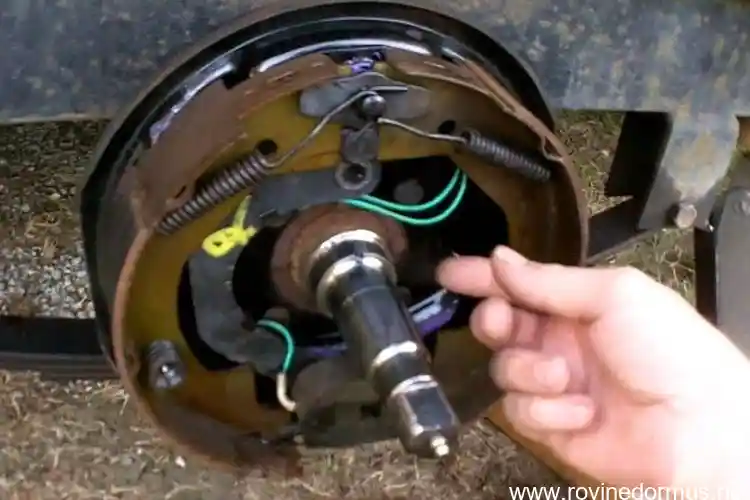
Unveiling the Interplay: How Locked Brakes Impact Engine IgnitionIf you’ve ever encountered the dreaded scenario of locked brakes and a car that refuses to start, you’ve witnessed the frustrating interplay between your braking and ignition systems. Locked brakes, often caused by electrical, vacuum, or mechanical issues, put a significant strain on your vehicle’s electrical system. This strain can lead to a drained battery or a burned-out starter, preventing your car from starting. Additionally, the vacuum system, which assists in brake operation, can become depleted when brakes are locked.
This depletion reduces engine power and can even lead to ignition failure. Lastly, mechanical brake resistance can increase the load on your engine, causing it to stall during ignition. Understanding these connections is crucial for troubleshooting and resolving issues related to locked brakes and car ignition.
Electrical System Overload: Drained Battery, Starter Burnout
Unveiling the Interplay: How Locked Brakes Impact Engine IgnitionHave you ever experienced the jarring screech of locked brakes, only to find your car refusing to start? This frustrating situation arises when the energy required to unlock the brakes drains your battery or stalls your engine. The electrical system, which relies on the battery to power the starter and ignition components, can become overwhelmed by the excessive current needed to release the locked brakes. This can lead to a dead battery or a burnt-out starter, preventing your car from starting. Moreover, if the locked brakes are due to a vacuum system failure, it can result in reduced engine power, as the vacuum assist for the brake booster is crucial for proper engine operation.
This vacuum depletion can also lead to ignition failure, leaving you stranded with both locked brakes and a non-responsive engine.
Vacuum System Depletion: Reduced Engine Power, Ignition Failure
Have you ever experienced a hair-raising situation where your car’s brakes mysteriously lock up, rendering it immobile, and to make matters worse, your engine refuses to budge? It’s a perplexing dilemma that can leave you stranded and scratching your head. In this situation, it’s crucial to understand the intricate interplay between your car’s braking system and engine ignition. Locked brakes can have a profound impact on your vehicle’s electrical system, vacuum system, and mechanical components, ultimately affecting the engine’s ability to start. Let’s delve into the hidden connections between locked brakes and engine failure, empowering you with the knowledge to troubleshoot and resolve this vexing issue.
.
Mechanical Brake Resistance: Increased Engine Load, Ignition Stalling
Unraveling the intricate interplay between locked brakes and engine ignition is crucial for understanding the root cause of your car’s immobility. When brakes become locked, they create an excessive amount of resistance on the wheels, placing a significant strain on your vehicle’s engine. This increased load can overwhelm the engine’s capacity to maintain a steady power output, leading to a decrease in engine speed and eventually causing it to stall. Furthermore, locked brakes can also lead to an overload in the electrical system due to the constant demand for power from the brake lights and ABS system.
This overload can deplete your battery and potentially burn out your starter, hindering your ability to start the car. Additionally, locked brakes can create a vacuum leak in the brake booster, reducing engine power and affecting ignition.
Expert Tips for Preventing Locked Brakes and Ensuring Smooth Car Starts
Want to avoid the panic-inducing scenario of locked brakes and a car that refuses to start? Join us for some expert advice on how to keep your car’s braking and starting systems in tip-top shape. Together, we’ll delve into regular maintenance habits, tackle vacuum system issues, and ensure your electrical system is firing on all cylinders. Armed with these preventative measures, you’ll be the master of your car’s destiny, preventing those frustrating moments when your vehicle grinds to a halt or fails to ignite.
Regular Brake Maintenance: Inspecting Pads, Rotors, and Fluid
Preventing locked brakes and ensuring smooth car starts are crucial for your safety and vehicle’s performance. Regular maintenance is key. Inspect your brake pads, rotors, and fluid regularly. Worn pads or low fluid levels can lead to decreased braking efficiency and potential lockups.
Don’t ignore any unusual noises or vibrations while braking. They could indicate a problem that needs attention. Additionally, paying attention to your vacuum system is essential. Check hoses for leaks and replace the brake booster if necessary.
A faulty vacuum system can affect brake performance and contribute to engine ignition issues. Maintaining electrical health is another vital aspect. Test your battery regularly and ensure your starter is functioning properly. A weak battery or a failing starter can make it difficult to start your car and put a strain on your electrical system.
By following these expert tips and addressing any potential issues promptly, you can prevent locked brakes, ensure smooth car starts, and keep your vehicle running safely and efficiently.
Addressing Vacuum System Issues: Checking Hoses, Replacing Brake Booster
Unlock the secrets to preventing locked brakes and ensuring effortless car starts! Regular brake maintenance is like a shield for your vehicle, protecting it against unexpected stops and starts. Just as a doctor checks your health, inspect your brake pads, rotors, and fluid regularly to keep them in tip-top shape. Moreover, a healthy vacuum system is crucial. Check those hoses and replace the brake booster if it’s misbehaving, just like a plumber fixing a leaky pipe.
And don’t forget your electrical system – the battery and starter are the powerhouses of your car. By giving them a quick checkup, you’re ensuring a smooth ride every time you turn the key.
Maintaining Electrical Health: Testing Battery, Ensuring Starter Function
Preventing locked brakes and ensuring smooth car starts is crucial for your safety and vehicle’s longevity. Regular brake maintenance is key: inspect your brake pads, rotors, and fluid regularly. Worn pads or low fluid levels can lead to braking issues. Additionally, pay attention to your vacuum system.
Check hoses for leaks and replace the brake booster if needed. A malfunctioning vacuum system can affect brake performance and engine power. Finally, maintain your electrical health. Test your battery and ensure your starter is functioning properly.
A weak battery or a faulty starter can prevent your car from starting and affect brake operation. These simple yet effective tips will help you prevent locked brakes and ensure smooth car starts, giving you peace of mind on the road.
Q1. Why won’t my car start after the brakes locked up?
Ans: A seized brake caliper or a frozen master cylinder can prevent the wheels from turning, making it impossible to start the car.
Q2. Can I unlock the brakes myself without causing damage?
Ans: Attempting to unlock seized brakes without proper tools or experience can lead to further damage; it’s recommended to seek professional assistance.
Q3. What are the symptoms of locked brakes?
Ans: Difficulty steering, vibration, screeching noises, and an inability to move the vehicle.
Q4. What should I do if my brakes lock up while driving?
Ans: Remain calm, release the accelerator gently, and try to pump the brake pedal to release any trapped air.
Q5. Can driving on locked brakes cause permanent damage?
Ans: Yes, it can damage brake components, tires, and other parts of the vehicle, leading to costly repairs.
Q6. How can I prevent my brakes from locking up in the future?
Ans: Regular brake maintenance, using high-quality brake pads, and avoiding aggressive driving can help prevent brake lockups.

I am article writer and Associate at Kirkland & Ellis.

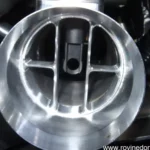



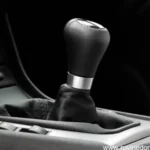
Leave a Reply